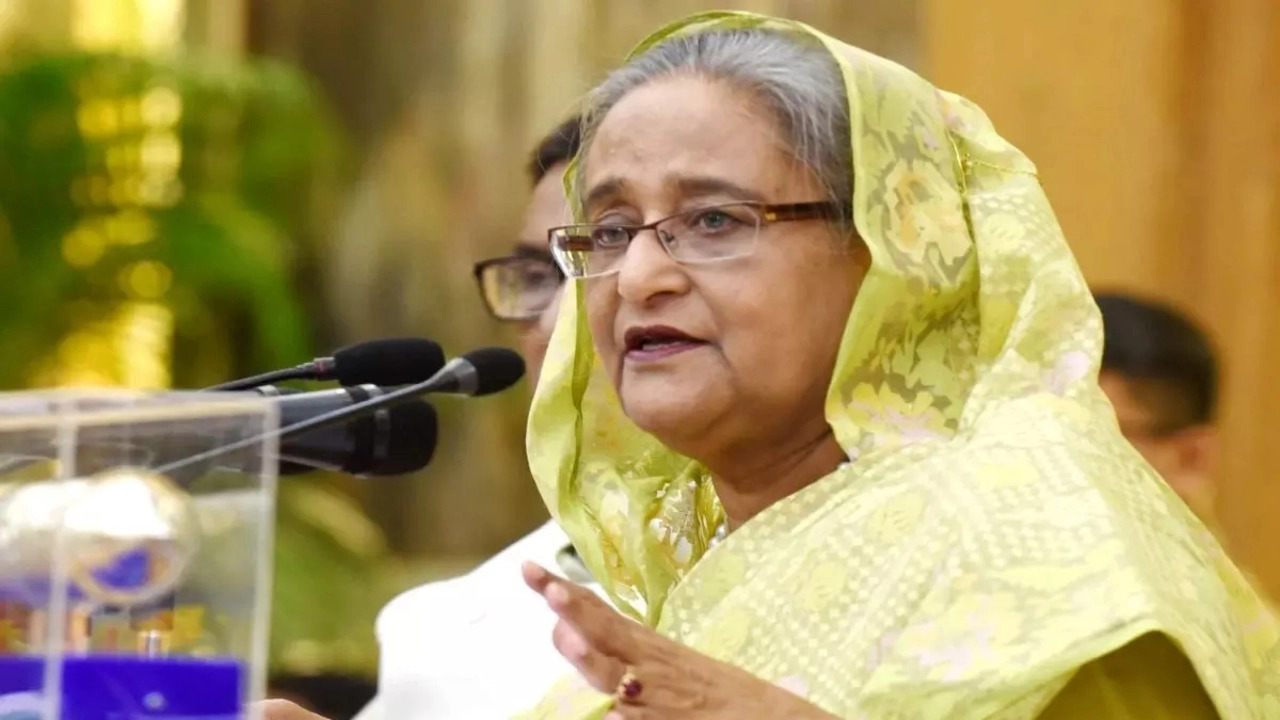The move comes at a time when Sheikh Hasina is facing serious legal challenges in the country over the recent anti-quota protests. (File photo)
KEY POINTS
- Hasina fled Bangladesh to India on a military aircraft on August 5.
- Bangladesh’s main opposition party has urged India to extradite Hasina to face trial in the country.
- The BNP claimed that the murder and extortion cases filed against Hasina were in the “extraditable” category.
New Delhi: In a major development that could pose serious challenges for the ousted Prime Minister Sheikh HasinaBangladesh’s interim government has revoked all diplomatic passports, including that of the 76-year-old Awami League leader. The moves come at a time when Hasina is facing legal action in the country over murder and other cases registered against her during the recent anti-quota protests in the country. Hasina, who fled Bangladesh to India on a military plane on August 5, is currently in a safe house as she explores asylum options in a third country.
Bangladesh’s main opposition party, the BNP, has urged India to extradite Hasina to face trial in the country. Hasina, accused of using force to quell protests, has 31 cases filed against her, including 26 on charges of murder, four for crimes against humanity and genocide and one for kidnapping.
“Bangladesh and India have an extradition treaty and they must hand over the people against whom legal proceedings are underway,” BNP Secretary General Mirza Fakhrul Islam Alamgir said in Dhaka on Wednesday after paying tribute to the party’s founding president Ziaur Rahman.
Alamgir said Hasina has “initiated several plots in New Delhi to thwart the revolution” that took place in Bangladesh.
Bangladesh and India have an extradition treaty that obliges them to surrender persons against whom legal proceedings have been initiated for any “extraditable offence”, including financial crimes punishable by a minimum sentence of one year in prison.
The BNP claimed that the murder and extortion cases filed against Hasina were in the “extraditable” category.
The bilateral treaty, however, does not apply to cases of a “political nature”. This exemption, however, is not available to those accused of serious crimes like murder, TOI said citing sources.
According to experts, India can refuse Hasina’s extradition by invoking Article 8 of the treaty, which allows signatories to reject requests that are “not made in good faith and in the interests of justice.”
More than 230 people have been killed in the violence that erupted across the country following the fall of Hasina’s Awami League government, taking the death toll to more than 600 since the mass student protest began in mid-July.
The Hasina-led government was replaced by an interim government, with Nobel laureate Muhammad Yunus, 84, appointed as her senior adviser.
Disclaimer:
The information contained in this post is for general information purposes only. We make no representations or warranties of any kind, express or implied, about the completeness, accuracy, reliability, suitability or availability with respect to the website or the information, products, services, or related graphics contained on the post for any purpose.
We respect the intellectual property rights of content creators. If you are the owner of any material featured on our website and have concerns about its use, please contact us. We are committed to addressing any copyright issues promptly and will remove any material within 2 days of receiving a request from the rightful owner.

